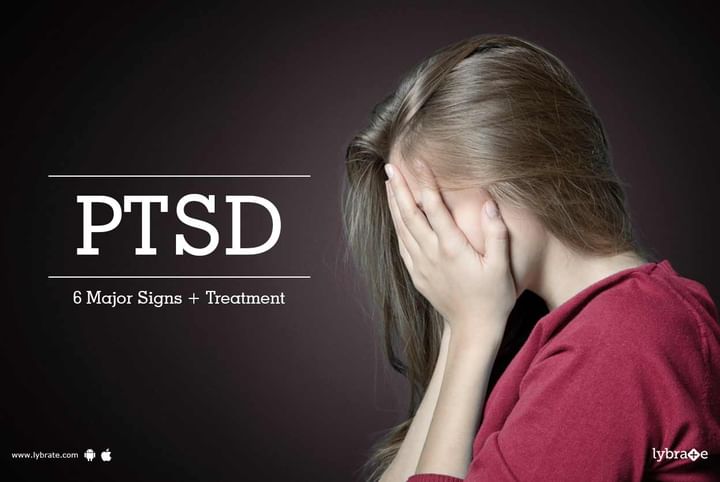Get the App
For Doctors
Login/Sign-up
Last Updated: Jan 10, 2023
BookMark
Report
PTSD - 6 Major Signs + Treatment
Post-traumatic stress disorder (PTSD) is an abnormal condition of the mind that develops when a person is exposed to certain traumatic events in life such as accidents, sexual assault or warfare.
The major symptoms of PTSD are:
- Reliving the traumatic experience over and over again; this leads to severe and long-term mental distress.
- Recurring dreams about the events.
- Provocation of traumatic thoughts by the slightest event that causes distress to the individual.
- Avoiding memories and thoughts that might remind them of the event.
- Developing a negative view of themselves and the world.
- Developing social or specific phobias.
Treatment
- Medication and antidepressants: Medicines such as paroxetine, sertraline and selective serotonin reuptake inhibitor (SSRI) help the individual address insomnia related problems that occur due to PTSD and suppress nightmares.
- Psychotherapy: This form of therapy is used to cure both mental health conditions (such as obsessive compulsive disorder, anxiety and depression) as well as emotional problems that result from PTSD. Skilled mental health experts are needed for this form of treatment to be administered. They would listen to each individual patiently and provide effective strategies to give solutions to the problems. Some of these therapies are:
- Cognitive Behavioural therapy: This therapy enables the individual to adapt to changes and recognize thought patterns which lead to irrational and negative behaviour and actions.
- Exposure therapy: This therapy causes the affected individual to first become anxious by exposing him/her to the traumatic memories, situations and objects by simulating them. The therapy helps the person to overcome his/her fears and become comfortable in the same environment that had previously caused fear and anxiety.
- Group therapy: This popular and effective form of therapy allows the individual to share his/her feelings, fears and thoughts with a group of people who have themselves experienced similar trauma in their lives. Sharing such experiences helps reduces stress levels.
Some Self-Help and Coping Tips include:
- Avoiding situations that cause PTSD can worsen the condition. Hence, the individual should try to embrace and face such situations boldly.
- PTSD can result in loss of motivation and stress. Try utilizing your time in socialising, indulging in certain or even exercising for that matter.
- Taking some time out to relax and having fun is very important. This calms the body and mind, thereby improving one’s mood.



+1.svg)
